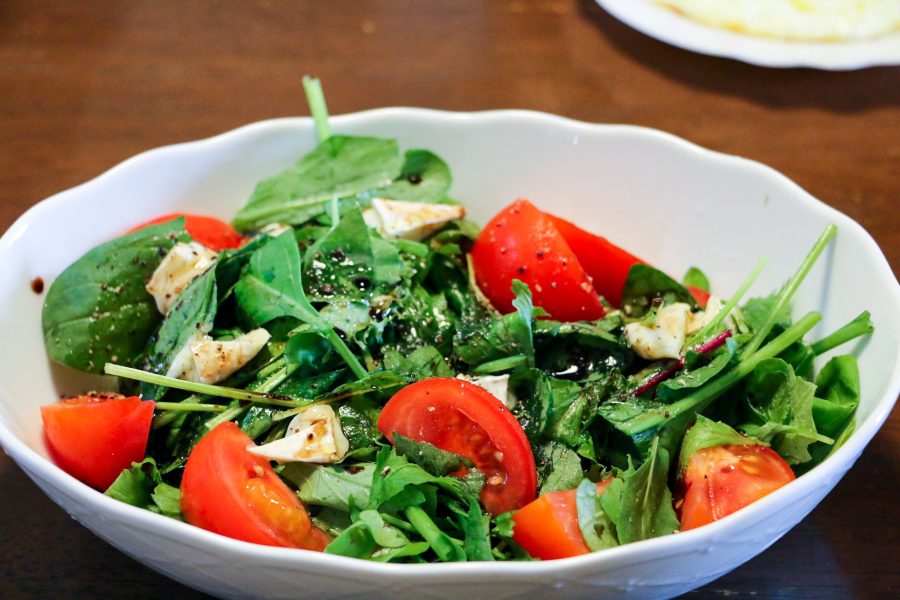Dieting has come a long way from its origins. Deriving from the Greek word “diatia,” the Greeks understood “the whole way of living focused on self-control and eating in moderation” (1). The Greeks believed in the connection of the mind, soul, and body. If one was not healthy, then that meant in consequence the others were not healthy. Then we saw the first ever best-selling diet cookbook written by Italian humanist Bartolomeo Sacchi in 1474 (1). This later inspired the famous piece “How to Live One Hundred Years—Discourses on the Sober Life” by Alvise Luigi in 1558. This work is still referred to today and gives us insight on the “Ancient Greek principles of moderation to show that a healthy lifestyle starts with a healthy diet” (1).
As time passed, diets evolved with the discoveries of proteins, carbs, vitamins, and so forth. Today we now have a variety of diets and food products for different kinds of health needs and desires. I wanted to evaluate some different kinds of diets and discuss their pros and cons for anyone who needs help finding what would work best for them.
To begin, the first diet I want to talk about is the ketogenic diet, better known as the keto diet. This diet is more unique than others as it focuses more on the increase of fat in your food and decrease of carbohydrates. The usual keto diet calls for intaking five percent of calories from carbohydrates (2). This can be from non-starchy and low-carb vegetables. Then, you are supposed to take 20 percent of calories from protein, which includes things like egg, meat, and cheese (2). Lastly, the rest of the 75 percent of calories should come from fats. This can include oils, nuts, avocados, flax seeds, and so on (2).
It is known that your body takes carbohydrates and turns them into glucose for energy. So with the keto diet, “when you cut carbs from your diet, you switch to burning fatty acids, or ketones” (2). This process is called ketosis and it usually takes about three weeks for ketosis to begin (2).
So what has some people raving about this diet? What has some concerned?
The biggest pro of this diet is the actual weight loss people have experienced. Keto dieters have reported losing their desired weight and even saying they have more energy than they used to. There have also been reports of decreased hunger, which some people still experience on other restricted diets. This diet also allows for you to indulge more in the foods most people love to eat such as butter, red meat, fish, and cheese (2). Other diets not only restrict these types of foods, but eliminate them almost completely.
Furthermore, this diet is great for specific health needs. For example, keto has been studied and reported to help reduce seizures in kid and young adult eplipetic patients. It is also a popular diet for bodybuilders and endurance athletes to intake fat in a short amount of time (2).
Now, let’s discuss the cons of keto. Due to the specifics of this diet, some find it hard to sustain and keep up with. Many give up at the start or halfway through before they get to experience the full real results of keto. Another difficulty with this diet is making sure you intake the right amount of calories and nutrients for you and your body. A lot of people struggle to properly plan their diet and face calorie depletion and nutrient deficiency while on keto. I also learned while researching that “some people experience dehydration on the keto diet because they’re eradicating glycogen, which holds water, from their bloodstream” (2).
The list of concerns and difficulties goes on, and I would recommend you do your own research before partaking on the keto journey.
Moving on, I also wanted to discuss the pescatarian, vegetarian, and vegan diets. These diets are pretty similar, with certain products being taken away as you go from each. The vegetarian diet eliminates all meat products. Pescatarian is basically the same, except for the inclusion of fish and seafood. Then, veganism eliminates not only meat, but any animal product. This is where the other two diets differ, as vegetarians and pescatarians can eat eggs and dairy products if they wish.
Some pros of a plant-based diet include improved cardiovascular health, reduced carbon footprint, lower total cholesterol, improved neurological functioning, and managed weight (3).
Arguably, a plant-based diet is a great option for mostly everyone. Many people get turned off of this type of lifestyle, however, due to personal factors such as tradition, overall comfort, convenience, and so forth (3).
However, some health conditions may call for things that this diet may not be able to give naturally, without possible supplements being used and integrated. For example, someone with an iron deficiency may have to take a higher dose of iron supplements while on this type of diet. Other popular supplements taken on this diet include b12, omega 3, calcium, and vitamin D.
If you want to make the transition into veganism, vegetarian and pescatarian diets may be a great start for you and can allow you to adjust in your own time. All in all, with the right research, you can definitely find the best way to integrate this plant-based diet into your life.
Again, this can be said for all diets. It is extremely important to understand your body and its needs, before partaking on arguably intense diets such as keto and veganism. You can check with your doctor and nutritionist to discuss the best diets for you, while staying safe and healthy.
-
https://www.alimentarium.org/en/knowledge/brief-history-diets
-
https://www.nm.org/healthbeat/healthy-tips/nutrition/pros-and-cons-of-ketogenic-diet
-
https://nunm.edu/2019/04/plant-based-diets/





















































